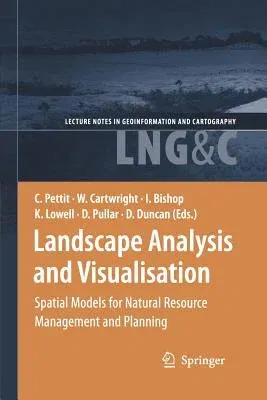Landscape Analysis and Visualisation: Spatial Models for Natural Resource Management and Planning (2008)Paperback - 2008, 21 November 2014

Qty
1
Turbo
Ships in 2 - 3 days
In Stock
Free Delivery
Cash on Delivery
15 Days
Free Returns
Secure Checkout

Part of Series
Lecture Notes in Geoinformation and Cartography
Print Length
614 pages
Language
English
Publisher
Springer
Date Published
21 Nov 2014
ISBN-10
3642429475
ISBN-13
9783642429477
Description
Product Details
Book Edition:
2008
Book Format:
Paperback
Country of Origin:
NL
Date Published:
21 November 2014
Dimensions:
23.39 x
15.6 x
3.3 cm
ISBN-10:
3642429475
ISBN-13:
9783642429477
Language:
English
Location:
Berlin, Heidelberg
Pages:
614
Publisher:
Weight:
893.58 gm